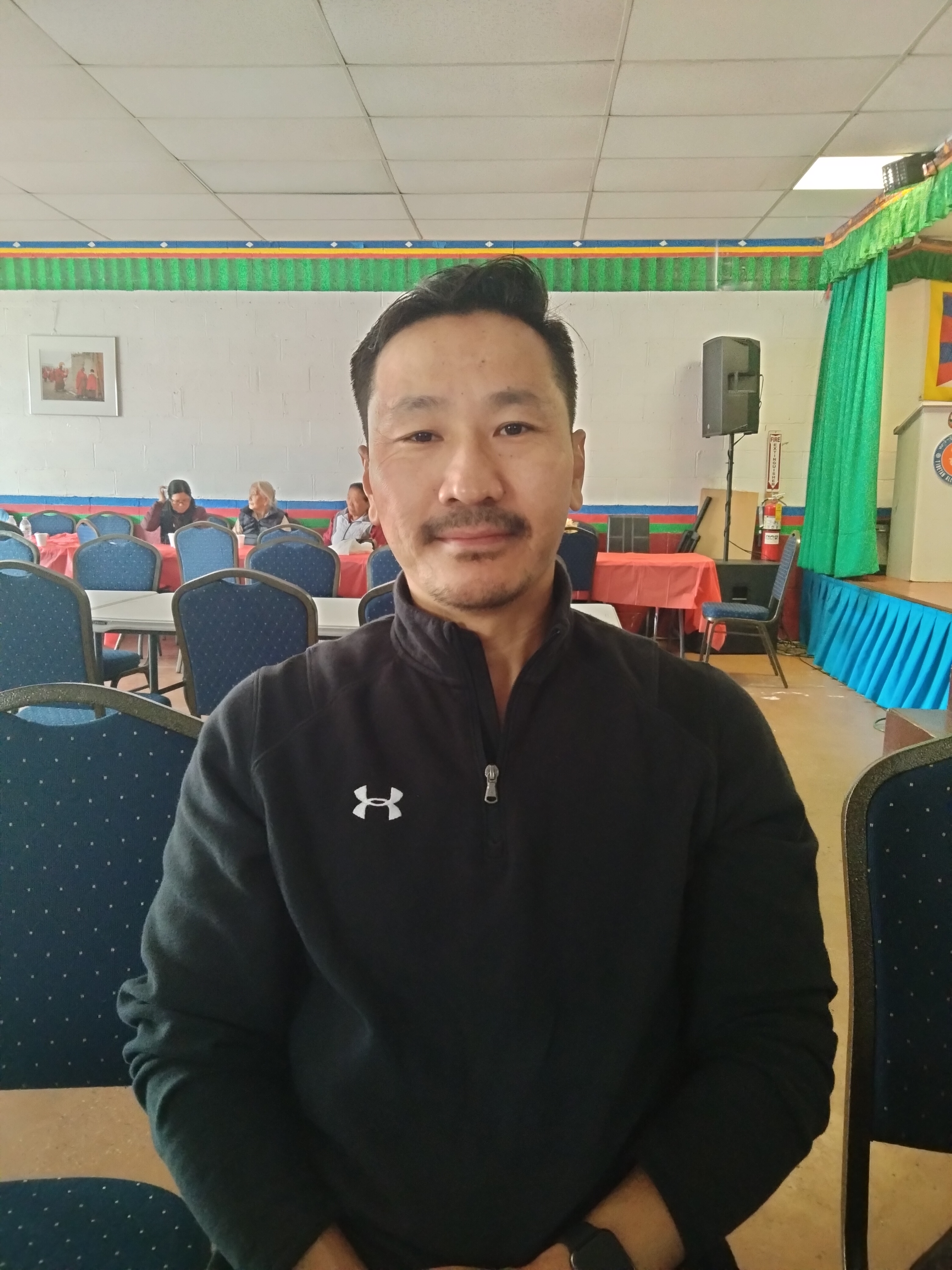Dhondup Gyatso,
written by Ellie Alden
interview conducted by Ethan Chen
Ethan’s interview with Dhondup Gyatso took place on May 5, 2022 at the Tibetan Alliance of Chicago’s weekly Sunday school event. Ethan and Dhondup’s conversation touched on the cultural differences between America and Tibet, Dhondup’s current work experience in Chicago healthcare at Northwestern hospital, and Dhondup’s family. Dhondup is a family man, he lives in a large household with his wife and their 9 year old daughter, as well as his parents and sister in law. He told us the story of his journey from Nepal to the United States–he was born and raised in Nepal, and traveled to India for school, where he stayed for 12 years until he met his wife; they moved to Chicago together in 2009.

Dhodup shared some insight into the difference between American and Tibetan culture. He said that he did not feel much of a culture shock when he moved to the US in 2009, but admitted there was a “learning curve” navigating life in America. He explained that in Nepal, his parents owned a tourist store, and “during those years, [he] met a lot of people staying there and helping them at the store” from America. He also watched American TV and traveled to Malaysia and Singapore, where he experienced very different cultures, which he thought contributed to a relatively easy transition to living in Chicago.
In terms of cultural differences, Dhondup noted that “in terms of.. How you approach a person or communicate with each other [Americans] are more open…[Tibetans] don’t want to say something…[Tibetans] think twice before [they] say anything to a person. [Americas] are more open.”
Dhondup has been going to the TAC since 2009 when he first got to Chicago so that he can “meet [his] own people, keep in touch, share thoughts as a Tibetan community”. He mentioned that people keep in touch via social media where people share day to day, “but it’s good to meet people face to face, talk to them”. Dhondup talked about the differences between his conversations between co-workers at his healthcare job in the Northwestern Hospital and the conversation he has at the TAC. Like many of us, his conversations at work are more relaxed–he sees his coworkers every day. In comparison, he described his Sunday afternoons going to the TAC similar to how many of us feel at family reunions–he said he often has more catching up to do with everyone. For Dhondup, “it’s good to bring [his] daughter [to the TAC] so she gets to get introduced to Tibetan culture and language”; at the TAC she learns Tibetan songs, dance, and culture, while also improving her language skills.
